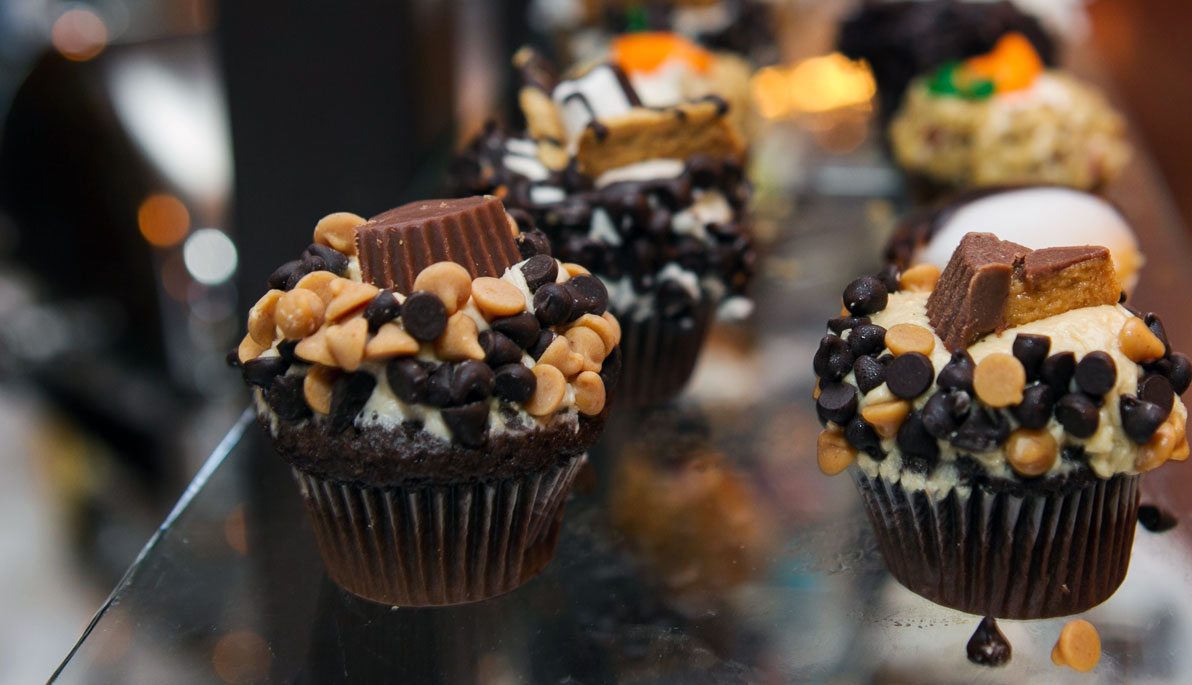
Bring on the Holidays, Not the Weight Gain
December 16, 2015
As part of an ongoing series on The Box, Maria Cerra (M.S. '15), a nutrition coach at the Life Time health and lifestyle company, shares tips for eating well and improving your fitness.
Colorful lights, cheerful music, and festive sweaters are hallmarks of the winter holiday season. Those sweaters also cover full bellies. According to an article from the New England Journal of Medicine, the average American gains two to five pounds from November to January. Adults who fail to lose those extra pounds in the upcoming spring and summer are likely to gain body weight during their lifetime. This means you could weigh 15 pounds more in three years or 60 pounds more in six years—just from the holidays.
Where does the weight gain come from? For me, it's from the guilt my cute grandma makes me feel when she constantly asks: "Did you eat?" I often eat more to please her. For you, it could be holiday treats marketed in stores and cafes. Who isn't tempted at that glorious time when Starbucks releases its holiday drinks? Me! Yes, me. But drink wisely, because these treats are loaded with calories, sugar, and fat. Take the caramel brulée latte made with 2 percent milk and topped with whipped cream, a current seasonal offering. A 16-ounce grande cup (or medium-sized drink) has 440 calories, 13 grams of fat, 70 grams of carbohydrates, and 54 grams of sugar. That last stat is the equivalent of almost 14 teaspoons of sugar.
Set goals to avoid digging out those stretchy pants this year. Follow my tips to avoid overeating:
1. Chew slowly and savor your meal.
Pace yourself to give your body time to digest food and realize when it's full. Drinking water and making conversation also slow down consumption.
2. Eat before the feast.
Maintain your regular routine. Fasting for a huge dinner will result in an increased amount of stored body fat and binge eating. Going into a feast on such an empty stomach leads to overeating due to heightened physical hunger and psychological appetite. Many assume the calories they consume at dinner are about equal to the food they refrained from eating throughout the day and that's rarely the case.
3. Only eat what you really like.
My eyes go happy as soon as I see the dessert table, but I have restraint. Stick to one dessert and remember portion control. For example, I make a rule to limit myself to two gingerbread cookies.
For more information, check out holiday recipes with lighter ingredients and view the Life Time Fitness Healthy Eating Guide (PDF). If you need more help, consider making an appointment with a nutritionist. Free consultations are available at the new Life Time center in Garden City, N.Y.

By Maria Cerra
More Features

An Alumnus’ Commitment to the Environment
As an energy management graduate from New York Tech’s Vancouver campus, Jasdeep Gulati (M.S. ’22) is highly invested in educating people about environmental and climate sustainability.

Vancouver Faculty Win University-Sponsored Research Awards in New Program
The new Global Impact Research Grant (GIRG) program has been developed to keep Vancouver-based faculty connected to faculty and research projects being conducted on the university’s New York campuses.

Studying Climate Change One Degree at a Time
Junhua Qu (M.S. ’24) began her collegiate journey in Beijing. But, her interest in climate change took her to New York Tech’s Vancouver campus to study energy management.